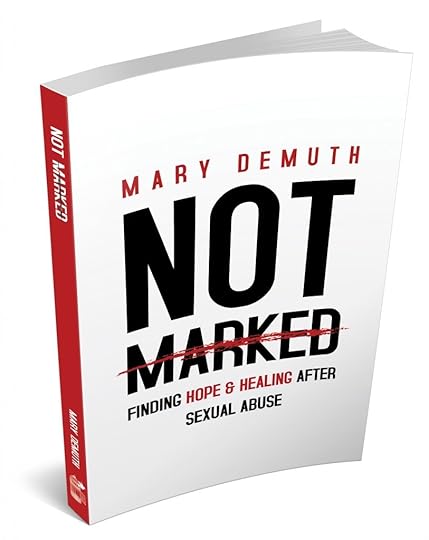Jonalyn Fincher's Blog, page 11
February 12, 2014
Mary DeMuth on Recovering From Sexual Abuse
In honor of Valentine’s Day, I want to talk about loving someone well . . . after the trauma of sexual abuse.
Several months ago, Mary DeMuth found Soulation (thank you, Jim Henderson) and set up a Skype call with Dale and me. Mary writes posts like “I’m Sick of Hearing About Your Smoking Hot Wife!” so I was interested in seeing what she was like. By the time our video chat ended I was impressed beyond her writing. Mary shares the burden of speaking about unsafe topics while creating safe places. She understands firsthand how the Christian marketplace had a low tolerance of risk and yet refuses to grow resentful. Mary cares about the tightly laced connection between sexuality and spirituality. I knew I wanted to share Mary DeMuth and her new book, Not Marked: Finding Hope and Healing After Sexual Abuse, with you.
~~~
I’m humbled and grateful to be here today. A huge thank you to Jonalyn for allowing me to share my heart. A little background. I’ve shared my sexual abuse story in the last few years, but I haven’t always been so open. Initially I kept it silent for a decade, then over-shared, then went silent another decade. The healing journey hasn’t been easy, but it has been good.
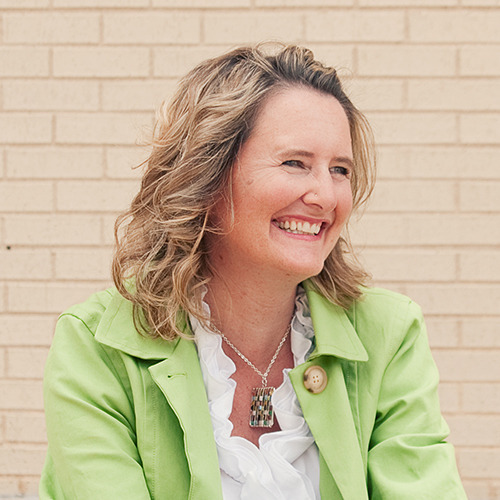 About a year ago, I sensed God wanted me to be bold in sharing about sexual abuse. I wrote “The Sexy Wife I Cannot Be” on Deeper Story, which went crazy (so many comments), followed by “I’m Sick of Hearing About Your Smoking Hot Wife” on Christianity Today. The overwhelming response to those two posts prompted me to write Not Marked: Finding Hope and Healing after Sexual Abuse.
About a year ago, I sensed God wanted me to be bold in sharing about sexual abuse. I wrote “The Sexy Wife I Cannot Be” on Deeper Story, which went crazy (so many comments), followed by “I’m Sick of Hearing About Your Smoking Hot Wife” on Christianity Today. The overwhelming response to those two posts prompted me to write Not Marked: Finding Hope and Healing after Sexual Abuse.
The book proved too risky for publishers, so I decided to crowdfund it, which turned out to be an amazing success. I cannot believe that now I can hold Not Marked in my hands, and also offer it to you. What’s unique about it: It’s written from the perspective of a survivor. It doesn’t offer cliche answers. It’s honest. And my husband shared his unique journey of how to walk a loved one through their sexual abuse.
The following is an excerpt from Not Marked, written by my husband, Patrick.
~~~
“How a Spouse Can Help a Sexual Abuse Victim”
by Patrick DeMuth
To ask someone who has been abused to share their story with you can be an overwhelming challenge. As Mary says, there is so much shame and self-condemnation that goes along with being a victim of abuse. Add to that the almost pathological mistrust of people, it is a recipe for bottling it up and hoping it never surfaces.
When I got married, I knew of Mary’s abuse, but I didn’t know the details or the extent—much of which she only remembered as time went on. Perhaps you are married to an abuse victim but you didn’t know that was part of his or her past. Perhaps your spouse has never even shared anything about it with you. You want desperately for your spouse to be healed and you know that if they can share it with you, they can begin that journey. So what can you do?
The most important thing is to become someone who is trustworthy. If you are not someone your spouse trusts, she will never truly share her heart with you. If you don’t treat her emotions and story with respect, if you refuse to change your behavior when it causes “triggers” in your spouse, then you will never have the intimacy you hope for.
I didn’t learn the lesson about being trustworthy until we had been married about twelve years. That seems like a long time, but I had some growing up to do. The way Mary eventually found me to be trustworthy was based on at least these four things:
I didn’t change the subject when she decided to talk about her abuse—I actively listened and also validated her feelings.
I began to own my own “stuff.” It was important that she knew I was not perfect. It was important that she knew I was not her counselor but a fellow-struggler.
I was vulnerable too. This is a hard one for guys—at least this guy—because vulnerability is a sign of weakness. I believed it could be used as a weapon against me. It takes a lot of trust to be vulnerable.
I actively changed the way I behaved if it was causing her to remember her abuse. If there were things I did that triggered her, I had to consistently and intentionally work at not doing those things. This can only happen with humility and a deep concern for the other person—in other words, selflessness.
Following these four steps may be only the beginning. Each person and couple are different with unique dynamics. Perhaps there is a lot of confession and forgiveness that needs to happen on your part. Perhaps there are circumstances that need to change in order for communication to truly begin. Perhaps professional counseling is needed. To be a person available and trustworthy means you are willing to do anything for that person, and no matter what comes out of her mouth, you will neither run away nor share it with anyone else.
~~~
I hold a copy of Mary DeMuth’s slim, sleek Not Marked in my hands. It begins with these words of dedication “For all those who feel marked, tainted, and unnecessary on this earth: I hope you close this book cleansed, renewed, and wholly loved, living an unmarked story.” So far, my favorite chapter is Chapter 6 “Heal by Design: How God Made You is How He Heals You” where Mary writes “Satan came to destroy and de-story us. He cannot build or make, only tear down the masterpiece that God created in us. Being unique reverses the injury.”
If you buy a copy, I want to know your favorite chapter.
Please note: I have one free copy of Not Marked waiting for the most loved comment below. You vote.
Follow Mary @MaryDeMuth.
For further reading on sexual abuse and its roots see these RubySlippers posts:
When a Man You Loved Was Abused
How to Spot and How to Treat a Chauvinist
February 5, 2014
Get a Room
Something bizarre happens to reality when you step on a stage and share. The audience comes to think you are always as entertaining or delightful as you look for those 20 minutes. You fill their hopes and better than you really are.
I have worked with my husband for almost 10 of the 12 years of our marriage. We run a platform ministry where our marriage, parenting, even sex lives come under public scrutiny.
People will watch us on stage and assume we have it made. “I could never do that with MY spouse.” I want to tell them how we just argued over how we’re not sure we even want to keep doing this.
One of my prayers before we walk on stage is that we will be more ourselves this time than last. That the person on the stage will be the same Jonalyn that interrupts and puts her foot in her mouth and asks eager questions and wants to be cute and funny and is often as much a smarty-pants as she is brilliant.
It goes by lots of names: authenticity, integrity, honesty. Wendell Berry’s characters seem to have it in droves.
I want it. And so does Dale. But it has not come easy to us.
I don’t naturally want to be as loving to Dale as I appear on stage. Sometimes I want anything but a room alone with him.
Last Fall, we spoke together for the “Get a Room” marriage retreat for a local church. It was the first time we realized the need for a substantial caveat. I read this paragraph to the audience before I spoke on “Dis-enchantment to Re-enchantment”.
Dale and I both come from families with generational sins of sexual infidelity, manipulation, codependency, divorce, shame, bullying, chauvinism, spiritual abuse, and substance abuse. We are not just lucky, our marriage looks the way it does because we work on it.
I then spoke about sex for an hour. Dale followed it up with a talk on “Men and Intimacy”. We finished with an hour of questions and answers (these talks with our discussion guide can be found on iTunes). I think it was the first time we both spoke so candidly about sex together with an audience of married couples.
We must be very gentle with one another, for all of us are overcoming. Including me. Including you.
This is a post about the tools Dale and I use to overcome in our marriage. Tools that keep us wanting a room together, even after a week of arguments.
Equality
We run our marriage, our speaking and writing, and our parenting as equals. (Theologically this is called egalitarianism, and interprets “husband is the head of the wife” to mean the husband has an interdependence upon and is a source–a la Adam and Eve–to his wife, not husband is an authority over the wife. If you were like me and raised to believe the husband should be a spiritual leader to the wife see Unmuted and Ephesians 5–click arrow on bottom left for successive posts).
Well, equality is our ideal. In reality, we make about two hundred and sixty-seven (I know I’ve counted) compromises each day.
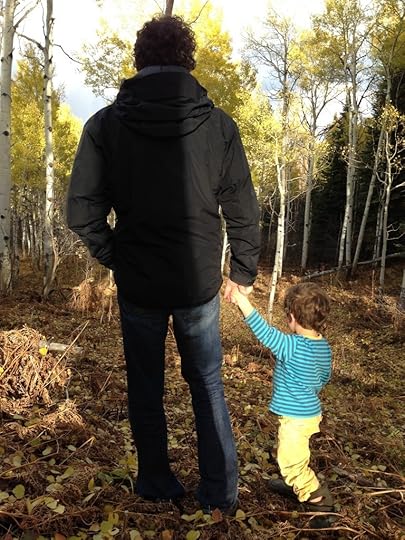
Dale with Finn in White Woods
Dale takes our son, Finn, every afternoon, I take him every morning. But, Finn’s naptime is in the afternoon, so Dale (actually!) gets one extra hour (hey, no fair!). But, Dale puts Finn to bed every night. Yeah, but I (technically) get up with him every evening if he wakes in the night, which happens every few days or so (maybe). So I get to read every evening a bit longer than Dale, but I might get less sleep.
But it all evens out, mostly. When I cook, Dale watches the little guy, when Dale cleans up dinner, I take my turn.
We believe in mutuality, equality, but we still have roles. Our roles, however, are not cemented over our gifts. Instead, we choose our roles based on our strengths. For instance, I tend to be the first to suggest we all go outside to shovel the walkway. I love telling people what to do (my spiritual gift is being bossy). Dale’s spiritual gift (as he’s newly christened it) is “remodeling ideas” so he tends to upset all my excellent plans,
“How about we shovel the walkway when there’s not a blizzard outside?” Dale responds.
“Or, we could pretend we live in the the 1800′s and shovel it anyways!” I always have a good rejoinder.
Until recently, when we shared the stage, our notes came together like a collage. I’d write the talk, copy-paste Dale’s ideas where I thought they fit. I’d let him (see the problem yet?) tweak it, then we’d assign parts and practice. Often sparks (not the romantic ones) would fly between us over the content.
Recently, we started doing things differently (full credit to Dale who remodeled, once again, my original idea).
We both picked up brushes and started painting ON THE SAME CANVAS (this is a metaphor, we actually weren’t painting). You can imagine how nervous this made me.
We wrote a talk together, from scratch. And it was the slowest, most unpleasant process of the year.
It began when Dale and I sat across from each other at the dining room table and talked. It grates against my order and leadership abilities to let his ideas interrupt, but I planted my fingers on the keyboard and listened to his ideas long enough to write them down. THEN, I shared my ideas. And I had plenty because I had been waiting so long.
We wrote and re-crafted the entire talk together. We lived the verse we love to speak about, “Neither is woman independent from man, nor man independent from woman.” (1 Corinthians 11:11)
The result: a talk we’re both proud of. We (WE!) crafted a talk, our little masterpiece on which we can both sign our names. We (WE!) could perform it with a conviction that this was our point, crafted together. Neither of us was ‘stuck’ saying some canned line the other person had come up with.
But sitting down at the table, patiently listening, adding every point Dale suggested before I steered him toward my three points, required a tectonic shift in my soul. I had to pray and ask friends to pray beforehand. I had to gear up all day long.
I still get anxious when I know we have a talk to write, but I no know I can hold my thoughts long enough to listen (I know this now because I’ve done it once).
I’m climbing out of the family sin of control and domination, out of the glitch of impatience and selfishness that has been around my bloodline for generations.
I am learning patience, and it’s paying incredible dividend, it’s fruit from the Spirit. If you have patience, you get the benefit of living patiently, with the one you love the most. 
Humility
We prepare for a radio interview. We critique each other’s points, we study and prepare counter-points. We go LIVE and the crazy-making begins.
Maybe to the audience all seems to go as planned. But when we hang up, my eyes are bright and Dale’s have dulled. I spoke over him.
Dale wonders if his points were heard. We both feel inadequate.
Enter shame, that feeling that we are unworthy of connection because we just didn’t do as well as we could have done. It can do some fascinating work on a marriage.
Fascinating because gremlins pop up with their ugly agendas and we find there is always more to unpack together.
Internally, I will want to tell Dale how to do things better (Here are five steps to avoid criticism. Now memorize them). Internally, Dale will want to tell me how a point wasn’t actually helpful or clear for the larger picture. And sometimes those internal thoughts spark into long, long arguments. We can argue beautifully, intensely, passionately, and even kindly (watch us on stage sometime, you’ll see what I mean). Or watch us off stage and see we’re not always kind.
I’ve started to notice, when I’m feeling ashamed, I punch below the belt.
Shame feels different for everyone. For me, shame feels like impatience and a sudden fear that there won’t be time if we don’t move NOW (in fact we’re probably already late). Shame feels like agitation, finger-tapping, bustling-to-put-things-away anxiety. Shame unrecognized makes me mean.
But, shame RECOGNIZED (e.g.”I feel too weak to do this.”) looks like shaking shoulders, covered eyes, and feeling that longed for touch that all is well, that I am still wanted.
Dale and I confess to each other when we feel unworthy of being loved. We are also open to hearing how we are not being kind enough, strong enough, present enough with each other (these are the hardest, most important moments of our marriage). It’s a showstopper for me to hear Dale say, “I feel blamed right now.”
And if I cannot stop being unkind in that moment, it’s time for me to leave the room to calm down.
We have begun expecting mistakes out of each other. I even have memorized a speech in response to Dale’s mistakes, “Oh, Dale, it’s okay. I do that all the time.”
Making Room
Dale and I interact almost every hour on business. We interact dozens of times a day on parenting. And in the evenings, we have dinner together with constant interruptions conversations with our three-year-old.
After dinner and playtime, if it’s a weeknight, Dale puts our son to bed (we swap on weekends). I get the time from 8- 10pm to fill as I choose (being a book worm–I read!), but at 10, we belong to each other again. We give each other at least one hour of agenda-free hang out time (thank you to Bill and Robin Moore for inspiring us with this idea).
Sometimes, we watch the next Breaking Bad (we’re on the last season, so no spoilers!). That still counts for us, because we’re active watchers, which is a technical way to say we interrupt a lot to point out what we’re thinking.
Sometimes we talk about what is bothering us about our work, or an upcoming speaking engagement. A few weeks ago, it was in our “after 10pm” time that I told Dale about my fear of botching up an important meeting.
“I need to know that I can mess this up and still feel you will be grateful for my trail blazing,” I said.
“You can botch the whole thing up, Jonalyn. I’m okay with that. If they don’t want us for their event, we have plenty of other work to do. Also, that means we won’t have to travel! Bonus!”
I am often so glad to know that every day, no matter how intense, at 10 pm I get to make room for us. It helps me remember why I married him in the first place.
So, go get a room and start loving that lucky person you married.
~~~
To hear the in-depth version of this post, go to iTunes and click on Soulation’s “Get a Room“.
I’m indebted to Josh Brahm for asking the question that prompted this post.
Next week, a guest post by author Mary DeMuth with a sneak peek of her book Not Marked: Finding Hope and Healing after Sexual Abuse. 
January 29, 2014
Passion and Patience
To love well is as much a skill as an athletic feat. It takes the passion and patience of a marathon runner. More, perhaps, because we don’t find soul gyms on every corner.
If I want to love you, I devote all my strengths to you. One of those strengths, as my recent Strength Finder results proved, is passion and a relentless curiosity. My love looks like passion with the icing of adventure. If you come along with me, you’ll never be quite sure where you’ll end up, but you’ll find me looking at your with as much interest as when we began.
I have a friend who thinks of love in the same way, but her strengths are different. If she really loves you, then she will enjoy you. She will relax into what you want to do that day and come along for the ride with as much investment as if she had planned the whole day. Her love looks like patience with the icing of pleasure. If you go along with her, you’ll find her smiling with as much delight as when she began.
So when this friend, A, who happens to be one of my besties, loves me, I know I’m enjoyed. She has fields of patience that reach around past my horizons, fields that feed me when I’m fed up, fields that stop me with their beauty and stillness.
When I love A, she knows to buckle her seatbelt. We will be going somewhere new, she will be wondering something different, and we don’t know what depths we’ll dredge up. But I can promise to be her unshockable audience who keeps asking for more. And A will know she has reams of film in her life that I want to study and pause and rewind to watch again.
This is what friendship does, it notices and honors the differences. Not by tiptoeing around them (which is often the liberal mistake) nor by pointing them out for judgment (which is often the conservative mistake), but by loving the differences.
How do you love someone who is so different from you?
The more A and I talk the more it comes out that how we approach others to love them is different. She is patience, I am passion.
One day, A will want prayer to love her aunt better and I will ask “What kind of love? The kind that comes easy for you? Do you want me to pray for you to enjoy her more? Or (and I go on as I tend to do) Do you want me to pray that you’d love her with passion, with the insistence of knowing there is more behind the nice things that she says?Do you want me to pray for you to love her in the ways that feel natural to you, or do you want me to pray for something unnatural, something miraculous? Shall I pray for you to love her into even the awkwardness of asking a hard question?
How shall I pray, A?”
And A will laugh at my insistence and tell me she must think about it, “You always make me think, Jonalyn.” She will say for the thousandth time.
And I will practice some patience while I wait for my friend.
While I’m wondering, I will ask A to pray for me.
“Pray that I might love my sister” I ask, then, for the more courageous prayer, for me. “Pray that I would enjoy my sister without knowing her back story or motivation. Pray that I would be able to laugh patiently with her even when she makes three U-turns in a row. Pray that I would enjoy our lives in the slim overlap of babies and gardening and writing that we call our common interests. Pray that I wouldn’t pry where I am not invited.
Pray for me, A, that I could love in those unnatural places that comes so naturally to you.”
For such is the love of the Father for us, loving us in places unnatural to his deity, so we might be full of the strength to love against our “nature”, or better, to love as our original nature was made to be.
To love where Jesus leads. How do you do it?
January 22, 2014
What You Can Do For Foster Kids
One of the foremost researchers on childhood trauma, Dr. Bruce Perry, has found that children are likely to be successful if even one caring adult can communicate to the child that they are love-able and have some choices in life. Be that adult.
– Dr. Tiffany Whitworth, Psy.D.
I have a vivid memory of the woman who introduced me to egalitarian thought (equal partnership between men and women in the church, home and workplace). She was only one woman, more a friend of my parents, but she planted a dormant seed. Once I was married, that seed grew into the book I wrote on women’s equality with men (Ruby Slippers) and the blog that you’re reading right now.
It only takes one adult (a teacher, a coach, a friend, a mentor, an advocate) to change a young person’s life.
Last week, I interviewed Jen, my cousin who is fostering a child in her home. We learned how hard and non-romantic the experience can be. We also learned from Anastasia who has fostered-to-adopt two girls (now young women) how foster care can be incredibly fulfilling. (Read Part 1: The Snarl of Abortion).
This week, I’ve interviewed two experts on how to help foster children. Tiffany Whitworth, a licensed psychologist working at an outpatient community mental health center in the greater Atlanta area and Tanya Gore, a foster child court advocate.

Tiffany Whitworth with her children.
Tiffany works in the community in which she was raised as a clinician, supervisor and trainer of other clinicians. Half of Tiffany’s referrals are from child protective services with a portion of those children in foster care. Although she’s always loved working with children, she was not aware of the needs of children and families in “the system” until graduate school. She now believes that providing practical training and support to these families is not just her job but also part of her Christian obligation to love our neighbors. She is living out Naomi Schaefer Riley‘s ideas in the recent article “Make Foster Care Work, Let Churches Lead.”
Tiffany, what can we do to notice and care for the needs of foster children in America?
Thank you so much for thinking through this idea.
It is easy to assume others are like us, with our same resources and choices. I feel strongly about middle class, well-educated churches working harder to care for their poorer neighbors. I regularly get frustrated with people’s blaming of the poor… So many middle class families cannot even conceptualize why a parent might lose their temper when a child wets the bed… but it becomes more reasonable when you understand that they have no washer/dryer, little money for the laundry mat, unreliable transportation, and no time to do an extra load of laundry without missing work and getting fired. What would be no big deal in our houses, becomes a huge deal for a poor family.
Families can certainly sign up as foster parents or for respite care (relief care for foster families who need a break from the 24/7 schedule). A smaller but very effective step could be providing diapers for those in poverty as diaper shortage has been directly linked to both child abuse and mental health problems for poor mothers. I would encourage ideas like having a diaper collection “baby shower” or purchasing two packs of diapers throughout your baby’s year and donating the second pack to families in need. If you do not know families in need, then meet some. Children end up in foster care due to inadequate support networks. So try to be there for families before there is a problem. Befriend a family and simply offer rides to the doctor, or pick them up and grocery shop together. Also, consider mentoring through your local school system.
From my perspective, it seems that more money and resources are put into the political push for pro-life legislation than caring for the children that do exist.. any thoughts on that?
I was unable to find specific statistics that reference your hypothesis regarding how the church tends to unborn and foster children; but I can relate to this idea. I know in my churched upbringing, I was taken to many a pro-life rally but never knew anyone who kept foster children. Now, I regularly hear Christians making political decisions based entirely on a candidates views on abortion. There does seem to be much less emphasis on the moral ramifications of other political choices. That said, I know some churches within my current community are very involved with the suffering of children and families around them. I would add that I observe people attending church based on common social-economic-status which provides a narrow perspective on how political decisions impact groups differently. Poverty is a big indicator of involvement with child protective services. Typically, poorer churches have more direct contact through friends or their own experiences in foster care. So my contact growing up might have been limited by attending a church with primarily well-educated, wealthy, two-parent families who were less involved with foster care or the poor in general.
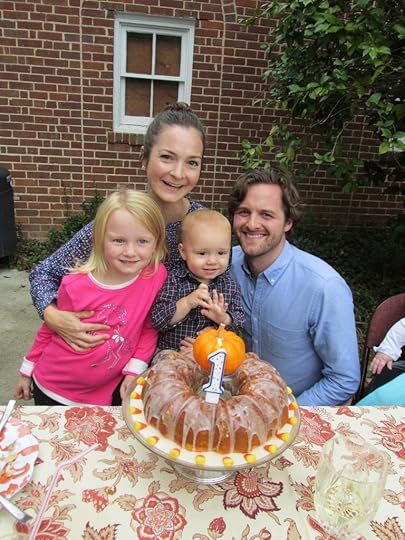
Tiffany with her husband, Mark, and two children this last October.
How is foster care and awareness of the children and parents in this system a part of our participation in the body of Christ?
I see caring for children in foster care as part of our Christian edict from scripture like James 1:27. I think the call of Christ pushes us to consider ourselves responsible for all other children, not just our birth children. We need to live and parent in a way that considers how our political and personal decisions impact the lives of all God’s children.
Tiffany has two biological children, a daughter who is 5.5 years old and a son who just turned 1 year old. She has been married for nearly twelve delightful years. In her imagination, she is wildly entertaining and adventuresome. But in real life and at this stage in life, she “has fun” in the simple pleasures of reading, cleaning her house, riding her bike to work, going to bed early, taking a walk, playing with her babies, and tossing ideas around with her husband.
Thank you, Tiffany.
Tanya Gore lives in the Portland area and parents her two biological children with her husband. Tanya’s parents fostered children as she was growing up. I asked Tanya how she became involved with helping foster kids.
When a friend told me about CASA’s (Court Appointed Special Advocates) I immediately felt like that is what I wanted to do someday. CASA’s are in a unique position because we get to be involved with every single person who comes into contact with that child. I interview lawyers, doctors, teachers, counselors, social workers, the bio parents, and the foster parents. I get to have a special relationship with that child or children that is not connected to DHS (each state has a Department of Human Services) or anything they may associate with as negative. Because DHS is so overworked I am able to make sure that every need is being met by DHS and everyone involved. I can hear what they most need and I work with that child to get that need (if appropriate) met. They suddenly feel like they have a voice, they feel heard. I write reports to the court regarding my recommendations for the child’s future (should they return to parent/s, or should they move towards adoption).
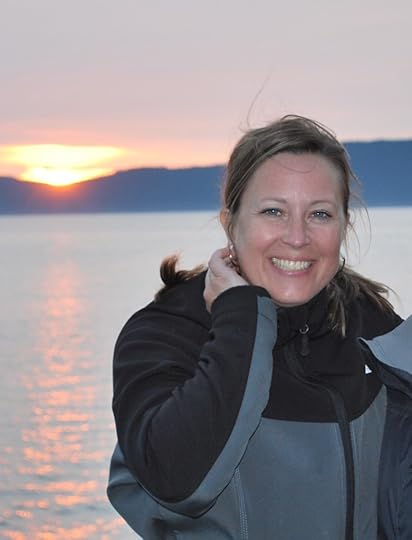
Tanya Gore
Working as a CASA allows me to see the whole picture from everyone’s point of view. I hear what is hard for the lawyers, the foster parents, etc…I see why there are gaps. I see why it is so hard for teachers to teach a classroom with 25-30 kids when there is one child in foster care that has barely made it to school the majority of their lives. But, I also get to make sure that further abuse in the system does not happen to my kids. I will make sure that my oldest of seven kids I have now (if not reunified with mom, or permanently adopted) has resources and support when she ages out of the foster care system. If people read the book To the End of June they would not be so afraid of teenagers which are the hardest to adopt. And, they would understand why we so desperately need to find a place in the foster care process.
Foster parenting scares people. I get that. But, being a CASA allows people to enter in, change a life and then maybe later they can decide if adoption is right for them. We will adopt an older child when I am done with graduate school. This process has shown me our family can do that.
Thank you, Tanya, for explaining another way to advocate for foster children and teens and for recommending To The End of June: The Intimate Life of American Foster Care by Cris Beam (2013). After I read it I echo you that it is a must-read to understand what parents, children and social works want and need.
My five practical steps
1- Start asking friends if they know anyone who is fostering a child. If you already know them, make an intentional point to honor, resource, befriend, take out for coffee, and listen to the work they’re doing. Their work is as vital as the work of a Pregnancy Resource Director, missionary to Africa, or youth pastor. To see what you could do, consider, Pastor Robert Gelinas of Denver, who founded Project 1:27 to match up Colorado foster children with Colorado churches and families.
2 – Look up foster care agencies in your area. I found mine by typing in my city and “foster care”. Call them and see if they could use donations of diapers or other basic items. At your next grocery run, pick up a package of diapers and drop if off. This is a start. Now that you know how, ask your fellowship group, small group or church to allow you to put an announcement in the bulletin or make an announcement to donate diapers. Print off Part 1: The Snarl of Abortion for those who want to know how foster care relates to abortion.
3 – Be part of casualty prevention. Tiffany recommend meeting families in need. How do you do that? I recommend spending time lingering after any church service. I’ve noticed it’s often the ones who linger the longest who have the most needs (haven’t you done that when you were needing extra care or prayer?). Invite those who linger to lunch at your house. Other good places to meet families in need: bus stations (my son and I ride the local bus in town every few months and we have met the folks we would never bump into normally– their stories always amaze me). If you meet someone on the bus, chances are they’ll need a ride back home. Offer them a ride.
4- Advocate for the voiceless by becoming a Court Appointed Special Advocate. Tanya is willing to answer any questions about what this might involve in the comments. Here’s what she told me:
Every state has a CASA organization. Many people do not feel they can adopt or be foster parents, but by being a CASA you can make as big an impact on the life of a child.
The training required is 40 hours through a local CASA program. It is a federal law that every child is supposed to be assigned a CASA, however there are not enough volunteers.
5 – Deliberate about where you donations are going. If abortion is a red letter item for you, re-distribute some of your giving from pro-life politics into pro-life foster care, like The Casey Family Program. Or financially sponsor a child to adoption with Project 1:27.
Wash yourselves, make yourselves clean;
Remove the evil of your deeds from My sight.
Cease to do evil,
Learn to do good;
Seek justice,
Reprove the ruthless,
Defend the orphan.
Isaiah 1:16-17
January 15, 2014
The Snarl of Abortion
Trigger alert for those who have terminated a pregnancy.
No woman whistles on the way to Planned Parenthood.
No woman plans to lose her child to the state.
So how does a woman end up there?
I don’t know all the reasons. But I do believe abortion is more like trying to cut a knot.
Abortion looks to me like a knot where the threads of poverty and passion snarl tight. Women facing poverty (the female face of poverty) usually know what foster care looks like from the inside. And often, abortion seems better—for them, and for their fetus.
Growing up, I held signs rallying for the “Pro-Life” cause. I even wrote a letter (my first published work) to the editor when Planned Parenthood set up shop in my small Quaker town of Whittier. I volunteered for our local Pregnancy Resource Center. But in all my work for the unborn, I didn’t learn about where unwanted babies go when they grow up. I didn’t know what happens to those toddlers and tweens when their impoverished mothers are unable to care for them.
Foster Care
The Foster Care System was something unknown to me, and being unknown it scared me. There was a family at our church that had an enormous 12-passenger van where the children looked cut and pasted together, their ages spanning two decades. They were suspect to me and my friends. We whispered about how their “parents” took them in for the extra money.
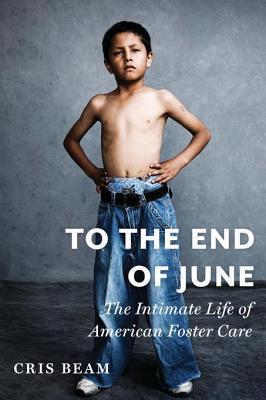 We were cruel in our ignorance. We didn’t know about foster care like we knew about other things, like pro-life rallies and keeping our pants on until marriage. I never saw a rally or meeting on foster care, never thought God’s foster plan to us Gentiles might be a subtle example for us to foster the orphans in our community—as friends, as sisters, as brothers. I didn’t know that my suspicion of foster kids in my church built a culture that made abortion look good.
We were cruel in our ignorance. We didn’t know about foster care like we knew about other things, like pro-life rallies and keeping our pants on until marriage. I never saw a rally or meeting on foster care, never thought God’s foster plan to us Gentiles might be a subtle example for us to foster the orphans in our community—as friends, as sisters, as brothers. I didn’t know that my suspicion of foster kids in my church built a culture that made abortion look good.
A woman accused of neglect (running out of food stamps, kicked off Medicaid, leaving her child with an older sibling because she must work) can lose her child in a snap. This child will likely bounce through dozens of homes until the mother either “shapes up” or until the child “ages out” or graduates from foster care at 21.
If we follow children who graduate from foster care we see numbers that would frighten any pregnant mother. Of foster care boys, 30% have been incarcerated by age 19, girls are 2.5 times more likely than their nonfostered peers to have been pregnant. Within four years of aging out, one third have acquired a mental health problem like major depression, anxiety or substance abuse. According to some figures 30 percent of the homeless in America were once in foster care (from Cris Beam’s To The End of June: The Intimate Life of American Foster Care, 2013).
Foster Families
As a child, I knew more about adoption than foster care. My aunt was left on the steps of city hall in Seoul, Korea at four months old and adopted by my grandmother before she was 6 months. So our family looked cut and pasted, too. And we loved it.
Today, both my cousins have chosen to invite children into their families who are not blood, one through adoption, the other, Jen, through foster care. One of my closest friends is mothering four additional children to her own three because their mother skipped out.
I asked my cousin, Jen, what fostering three-year-old Maddie, along with her three children, has been like.
“Hard,” she said, “The dynamics of how to raise a child who you didn’t birth, the concern of how to invest, the anxiety of how this is affecting your own kids, the way your heart breaks when she comes back from visits with her birth mother confusion writ large in her eyes. She needs stability,” Jen explained. “But how do we give it when we have no idea what’s ahead for her or us?”
Jen admitted that raising a foster child (Maddie has been through five homes in the year before she came to live with them) when you have your own children is a different ball game than adoption. The confusion is palpable for the child, and for yourself. She shared how Maddie cannot remember so much of her first two years with her drug-addicted mother. ”When Maddie asks me, ‘When I was a baby, you gave me a bottle, right?’ What can you say?”
“What did you say,” I asked Jen.
“I told her, ‘Yes, I did.’”
Jen explained the frustration of how the foster care system uses children to motivate parents to shape up, a common strategy Cris Beam also notes in her To The End of June: The Intimate Life of American Foster Care (2013). Jen and her husband are finding the struggle encompassing, to spend and spend their love knowing Maddie may leave at any time.
“Foster care sounds so noble and romantic,” Jen said. “People don’t get how hard it is. How conflicted you feel. The thought of Maddie going back breaks our heart. The thought of keeping her forever rips us up because we wonder, ‘What would that mean for our family and our kids?’”
Foster Children
I began learning about foster care after watching this video last Fall. Anastasia Torres-Gil, a fost-to-adopt mom of two who works on behalf of foster kids and their families in Santa Cruz County with Roots and Wings (Facebook page) gave me an interview to learn more. With her daughters now 17 and 20, Anastasia has adopted the girls who came to her at ages 4 and 7. What, I wanted to know, are foster children’s three most pressing needs:
“concurrent” foster home where the concurrent foster parent/s is supportive of the birth parents’ attempts to reunify with the foster child (and in some cases, foster parents have been able to act as mentors to the birth parents) and if reunification doesn’t succeed, then the foster parents are willing to adopt the foster child and still promote healthy contact with the birth family, when appropriate.
Location, location, location where the foster child can continue at the same school, friends, extended family, activities, protecting the special connection with teachers, sports coaches, teammates and friends. But if we don’t have enough foster families, sometimes this is unavoidable.
Needs – it might be tutoring, clothing, school supplies, new glasses, medical equipment or the ability to play extra curricular activities.
Anastasia opened my eyes to the need for homes for older children.”Most of the foster parents and fost/adopt parents I encounter want children under 5 years, but half of the children in our care are older than 5. Many people don’t have the physical room to take in large sibling groups, but many children entering the foster care system come in sibling sets. And sometimes there is quite an age range. So there might be two children under 5 years with a fabulous sibling who is a teen. We have wonderful 17 year olds who are longing for a forever family. Finding homes for them is challenging, as the majority of foster and adoptive homes are requesting younger children. ”
Anastasia meets these needs by recruiting foster parents from all walks of life: young, old, single, married, working, retired, self-supporting, any sexual orientation, already have children, never have had children, may live in an apartment, mobile home, small or large house, be an individual with physical challenges. The important criteria: loving, stable home.
When I asked Anastasia to share about her family she talked about resilience. “They are incredible – smart, caring, lovely, funny and they are young people who have so much compassion because of what they personally experienced.”
After speaking with my cousin, I wanted to hear why she does this.
Oh my gosh – how much room do I have to write? You have the opportunity to help children just absolutely blossom, take off and reach their full potential. It’s the most exciting and fulfilling thing I’ve ever experienced. The pride I have in seeing what wonderful women my fost/adopt daughters have become is incredible. And I know that their birth parents must’ve been really good people – but substance abuse overtook them. It’s very sad that they don’t have the same opportunity to watch their children grow into thriving adults.
It seemed to me that Jen and Anastasia were sharing two sides (it’s hard, it’s wonderful) of foster care: taking in a foster child, possibly adopting them will change you, no matter what.
The need is palpably in our back yards, and seems tied to the passionate plea we often make to end abortion, so why is it that I personally know more teens and college students going to Africa to change the lives of orphans (well and good) than I know of foster parents in America?
One answer: foster care is hard, life-long investment without a guaranteed result.
Next week I will be interviewing Tiffany Whitworth, clinical psychologist in Georgia who predominantly works with foster care children, and Tanya Gore, whose work as a foster child court advocate reminds me of what Boaz did for Ruth. I will also share what I’d like to see change in our faith communities. Check in next week to learn practical ways you can be part of the work Isaiah, the Jewish prophets talked about.
Wash yourselves, make yourselves clean;
Remove the evil of your deeds from My sight.
Cease to do evil,
Learn to do good;
Seek justice,
Reprove the ruthless,
Defend the orphan.
Isaiah 1:16-17
January 8, 2014
Transgender Questions
Before turning the floor over to Savannah Wolfson (who has also written the popular Women Who Breastfeed in Church for RubySlippers) I’d like to explain that this question of “What is normal?” combined with questions of gender and sexuality provide fertile ground for . . . cruelty or care. Add the sparse but confidently over-quoted verses on sexuality from Scripture and we find fertile ground for spiritual abuse. Soulation, and thereby RubySlippers, is a place where we continue to foster care for others while we scratch at the glass to see light and beauty together. Please carefully read Savannah’s journey, questions and engage with all the kindness God has put within you. I invite any honest question to this roundtable discussion. I will join you in the comments.
~~~
Transgender Questions: An Ex-Fundamentalist Asks
by Savannah Wolfson
I grew up in a bubble. My neatly packaged ideas of gender roles didn’t include anyone that didn’t fit into an idealistic (and often unknowingly privileged) box. When I went off to college, I debated with my roommate about whether or not we were still under our fathers’ headship, as we were without husbands to lead us. In my bubble, permanently single people weren’t often talked about because marriage was an assumption. I can recall many a sermon on gender roles in the home, but never a sermon that included blended families, because, well, divorce just wasn’t an option. I can’t imagine how fried my brain would be if I could tell my younger self the questions I am asking today.
Questions like, what does the “T” in LGBT mean?
By now I’ve moved out of my fundamentalist culture and I’m seeking to understand, learning how to be sensitive, and respond fittingly to the unfamiliar. I’m wondering if you can help me along this road. I’ll have to put in a disclaimer ahead of time—if I say something insensitive, I’m sorry. Please be patient with me and know that I wish to recognize where my idealistic bubble held me back. I’m ready to learn more.
As you’ve probably already figured out, I’ve been researching the transgender community. Up to this point, here’s what I’ve figured out on my own. I am cisgender. That means that I have always considered myself to be the same gender that others considered me to be at birth. I was born in a female body and I feel female. Of course, we wouldn’t need this term if there was no alternative, and the alternative to cisgender is transgender.
From what I understand, “transgender” includes a few concepts, but I’ll try to explain what I know so far. A transgender person can feel like they were born in a body that does not reflect their true gender. They can also feel like gender terms used to describe a cisgender person are too limited to describe themselves. Some transgender people undergo hormonal treatments and surgeries to help their bodies reflect who they feel they are on the inside.

Lisa Salazar
As I researched these options, I was struck with the impression that the genders, which I had been raised to believe were polar opposites, are far more similar than they are different, even physically.
If you’re like me, you’re willing to accept that people are different from you, even if it’s not something you understand. Reading the Christian transgender, Lisa Salazar’s story, I believe her, because she knows more about her experience than I ever will (Salazar’s book). The problem I have is that when I mentally assent to one thing—that some people are transgender—I quickly start seeing more and more of what I don’t know. I start asking questions like . . .
Is gender really so fluid that hormonal treatment and surgery could change a female body to a male body?
Why would God allow or what purpose would he have for someone’s soul to be a different gender from their body?
Does surgery really fix that? If so, what did trans people do before the age of plastic surgery?
Are there historical examples of trans people, or did the communication age reveal this problem?
Does the Bible have anything to say about this?
And what does the Christian community need to learn most about transgender people (keeping in mind that there are many transgender people who are part of the Christian community; the two are not exclusive).
Most importantly to me, how do I respond in the most loving way that I can to transgender people? I suppose I would have to follow God’s example for that, but I don’t claim to know how God feels about this issue.
I’m hoping I can learn from you. Do you have insights and questions about the experience of being transgender or knowing a transgender person? I’d love to hear them!
While you’re at it, you can consider my bubble popped.
Further Reading:
Lisa Salazar’s book Transparently: Behind the Scenes of a Good Life
January 3, 2014
My Quaker Roots
Dedicated to those who are curious about why I have not been baptized, RubySlippers’ first video for 2014. Watch to see what Quaker’s believe and why faithful Quakers don’t celebrate the sacraments.
Thanks, Hope Forti, for your original question here. And for those of you who appreciate irony, you might like to know that this Quaker girl is married to a Baptist boy, who has been water baptized.
Finally, I’d like to note that some of my most formative mentors are also Quaker, Robert and Barbara Seelye, Verl and Lois Lindley, Dr. Jerry Root, Richard Foster (and Renovare) are deeply influenced by Quakerism, like Dallas Willard.
The verses within this video:
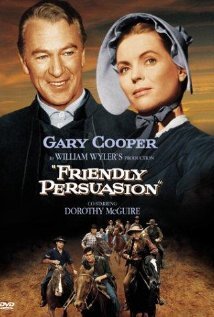
Gary Cooper and Anthony Perkins star in this 1956 film on Quakers in Indiana during the Civil War.
1 Peter 2:9 “ But you are a chosen people, a royal priesthood, a holy nation, God’s special possession,that you may declare the praises of him who called you out of darkness into his wonderful light.”
John 15:14 “You are My friends if you do what I command you.”
Ephesians 4:4-6 “There is one body and one Spirit, just as also you were called in one hope of your calling; one Lord, one faith, one baptism, one God and Father of all who is over all and through all and in all.”
Matthew 28:19 “Go therefore and make disciples of all the nations, baptizing them in the name of the Father and the Son and the Holy Spirit.”
1 Cor 11:25-26 “In the same way He took the cup also after supper, saying, “This cup is the new covenant in My blood; do this, as often as you drink it, in remembrance of Me.” For as often as you eat this bread and drink the cup, you proclaim the Lord’s death until He comes.”
Links for more information:
My Quaker background/denomination: Southwest Yearly Meeting
Delightful movie showing Quaker’s distinctions: Friendly Persuasion
Bill Gothard’s Basic Youth Conflicts
If you want to learn more about Quaker’s beliefs, begin with Elton Trueblood’s The People Called Quakers (isn’t that a rockstar name?). And don’t hesitate to ask for more in the comments.
Finally, may this example from my own life of being part of a minority sect’s beliefs in Christendom serve to prepare all of us to dialog about another minority group next week: transgender Christians.
December 27, 2013
The Best of 2013
I’ve snowshoed acquaintances into a snowy wood who walk the road back as new friends.
 I’ve stood before audiences of doubting strangers and seen them flood the Soulation book table afterwards as new fans. And while I wish it was simply me and my style that draws people, I know it’s something more.
I’ve stood before audiences of doubting strangers and seen them flood the Soulation book table afterwards as new fans. And while I wish it was simply me and my style that draws people, I know it’s something more.
Dale and I and the Soulation Team are whipping up some synergy together in the Soulation kitchen. We are cooking up banquets that require long lists of ingredients, days of studying, and perfecting our craft. But, in cooking theological feasts, we’re realizing how an 800 word post or an eight minute vlog isn’t enough.
Feasting, and I mean Babette’s Feast feasting (which if you haven’t seen, you can stream it this weekend!), doesn’t happen in snack pack size.
No amount of blogging and vlogging will adequately cover the human pursuit of loving Jesus.
We could write another book, but while we love hearing of people changed by our published work, we’re noticing that for many, you want more guidance than a book.
How many of you are hungry for more direction into growing more fully human, like Jesus?
A New Place
We are creating a new place to invite you. This space will be safe, like all our Soulation spaces. It will be beautiful and honest and engaging. It will take the pacing of our Soulation Gatherings (slow and steady) with the intensity of the best college class (worth your money) and add the personal touch of a spiritual director.
We are calling this new place our Soulation ‘Soul Gym.’
Just like a Fitness Center which provides several ways to work out your body, the Soul Gym will offer several options to strengthen your soul. For 2014, Dale and I will roll out three new topics for our Soul Gym track, open to members only. The recent Duck Dynasty controversy has proven the incredible need for the topic for March 2014: Spiritual Truth Without Spiritual Arrogance.
What does this mean for our writing? You’ll still be able to find me writing at RubySlippers.org and Dale at FreeAtLast.me. But Dale and I will be limiting our online writing to once a week. We’re cooking up a feast for you and we want it to be multi-coursed and unforgettable. For 2014, the focused vlogging, interviewing, and in-depth exploration will be taking place in the Soul Gym.
But, RubySlippers fans don’t need to worry. You can still count on me sharing my sexuality and faith thoughts regularly with you here, for free.
And, in keeping with the time we’ve spent together, I’d love to know some of your “taking stock” of 2013 thoughts. What stands out to you about 2013? How did you change?
For me, 2013 is the year my son put weight on his skis, Soulation grew to impact well over 300,000, and my husband and I celebrated our 12th year of marriage with the purchase of a tiny sailboat. We’re sailors now.
Dale turned 40 and I turned 34 which is a good age to start learning how to really have fun. “Fun” is going to be my word to practice in 2014. I’m counting on my husband and son to be guides.
And in my writing, in case you missed them, here are 2013′s . . .
Top 10 Most Read and Watched from RubySlippers
Is Itsy-Bitsy Wrong? Bikinis and Modesty
Irrigating Deserts: What Soulation Gatherings Look Like
Gay Marriage: Lessons for Both Sides (be sure to notice the comments)
Should Bondage and Domination Be Part of a Christian’s Sex Life?
Taking Sexual Hunger Seriously
A Friendly Firearm Debate- Part 2 Safety
Breaking Shame: Why Purity Culture Works
Why I Don’t Give out Sex Like Gold Star Stickers
Why 30-Year-Old Virgins are Not Sexless
S&M Revisited: Pain, Pleasure and Sex
Let me close off by offering a little inspiration for 2014.
Consider how Soulation is building American souls to love Jesus more intelligently, honestly and beautifully. See the postscript for some tangible highlights of 2013.
Would you donate to Soulation before 2013 closes? You can give here.
Grateful to have you engaged with me in this work of growing more human,
Jonalyn Grace Fincher
Vice President, Soulation
p.s. Soulation’s 2013 in pictorial review
December 23, 2013
Christmas Reading on a Cruise
I checked out Marilynne Robinson’s novel Gilead for my fun reading on a recent trip to the Caribbean. And since last week’s cruise (a gift from my husband’s family for his 40th birthday) came with an unexpected absence of service, both internet and Verizon, I thought you might enjoy seeing pictures of what I’ve been up to this last week. It was a true vacating from twitter, text, voxer, the news and even our regular Netflix shows.
And it was most delicious.
Interspersed with the photos please enjoy some of my favorite Gilead quotes thus far.
“There is a reality in blessing . . . it doesn’t enhance sacredness, but it acknowledges it and there is power in that.”p 23
(Citing these page numbers is revealing, isn’t it? It tips my hand that I really did check out this book from the library and lug it across the country to hold in my hands in my berth on the Disney Fantasy. What can I say? I’m old fashioned).
“When the Lord says you must “become as one of these little ones”, I take him to mean you must be stripped of all the accretions of smugness and pretense and triviality.” p 30

Riding in the Speedzone at Disneyworld’s Magic Kingdom. Our three-year-old driving way past his bedtime.
“A good sermon is one side of a passionate conversation.” p 45

Sailing away from St. Marteen

My favorite part of the day was enjoying the jogging track. Here I stopped to take a picture of the view. Every day was 70-80 degrees. Perfect wind, perfect weather for running.

A panorama of the jogging deck.
“Like one of those dreams where you’re filled with some extravagant feeling you might never have in life, it doesn’t matter what it is, even guilt or dread, and you learn from it what an amazing instrument you are, so to speak, what a power you have to experience beyond anything you might ever actually need.” p 49

Sailing away from St. Thomas
“The twinkling of an eye. That is the most wonderful expression. I’ve thought from time to time it was the best thing in life, that little incandescence you see in people when the charm of a thing strikes them, or the humor of it. ”The light of the eyes rejoiceth the heart.” That’s a fact.” (p 53).

Dancing at the Animal Kingdom with my son. Oh, yes, we got into it.

St. Magen’s Bay peek-a-boo view, which is what my son is doing.
“I feel sometimes as if I were a child who opens its eyes on the world once and sees amazing things it will never know any names for and then has to close its eyes again . . . I can’t believe that, when we have all been changed and put on incorruptibility, we will forget our fantastic condition of mortality and impermanence, the great bright dream of procreating and perishing that meant the whole world to us. In eternity this world will be Troy, I believe, and all that has passed here will be the epic of the universe, the ballad they sing in the streets.” p 57.
December 11, 2013
The Wars on Christmas
“Festivity is impossible to the nay-sayer”
Josef Pieper (not the same guy as John Piper)
At the center of this magnificent holiday we have a war.
I’ve been hearing about this “War on Christmas” for years. Depending on your Christmas politics, you may roll your eyes at those boycotting the “Happy Holiday” stores (Focus on the Family’s Naughty and Nice list). Another group of Christians point out how the “Keep Christ in Christmas” Christians are offended for the wrong reasons. Skye Jethani, executive editor of Leadership Journal, in his article “The Wrong War on Christmas” wrote,
It seems many Christians are offended when unchecked materialism in December is not explicitly associated with Christ. The irony. . . It amazes me that in less than a century Christians have gone from opposing over-consumption at Christmas to demanding it be done in Christ’s name alone. (which reminds me of Jon Stewart’s spoofing Bill O’Reilly’s “War on Christmas”)
 Are the “Keep Christ in Christmas” people captive to materialism? Are those of us who buy lots of presents and send Christmas cards capitulating to the greed and debt? Is our Christian intent to say,”Merry Christmas”, just annoying compared with the real problems of poverty and addiction in America?
Are the “Keep Christ in Christmas” people captive to materialism? Are those of us who buy lots of presents and send Christmas cards capitulating to the greed and debt? Is our Christian intent to say,”Merry Christmas”, just annoying compared with the real problems of poverty and addiction in America?
This war reveals two problems for Christians.
First, the self-consciousness problem. When I get into a situation where I want to sing out “Merry Christmas” as a greeting, I wonder if it’s appropriate, anymore. I worry that I might offend someone, even someone who loves Jesus (Messianic Jews, for instance, don’t celebrate Christmas). Perhaps this is what so many Christians feel is lost when we take “Christ out of Christmas”. We can’t blissfully shout greetings that mean the world to us and know others won’t, possibly, be offended. Knowing a holiday we celebrate is offensive sure sucks the jolly out.
Second, the consumerism or materialism of Christmas problem, which complicates things. I actually think the drain-my-bank-account type of lavish is often a good thing when celebrating something. Buying exorbitantly is not necessarily desecrating or naughty. Buying a lot of gifts might be almost wasteful, but that only makes gift-giving anti-Puritan, or anti- Mennonite, or anti-7th Day Adventist. Lavishness is precisely the stuff of the Old Testament celebrations.
Even wasteful lavishness. For how can you have a lavishly decorated tree without siphoning off funds and time that could have been spent . . . “better.” And so, we get (right on cue) the Christian sanctioned war on Christmas trees and ornaments and Christmas cards and all the time-wasting, exhausting stuff we use to celebrate.
But, pulling out all the stops, going over-the-top, bringing out the champagne I’ve saved for months, the no-end-in-sight presents toppling over themselves is actually a sign of something other than sin.
Josef Pieper (not John Piper), German Catholic philosopher and expert on worship in an address at “The Pascal Lectures on Christianity and the University” at the University of Waterloo said, “A feast day . . .
. . .entails a loss of utilitarian profit. In voluntarily keeping a holiday, men renounce the yield of a day’s labour. A definite span of usable time is made, as the ancient Romans understood it, “the exclusive property of the gods.” As the animal for sacrifice was once taken from the herd, so a piece of ‘precious’ available time is expressly withdrawn from utility. What happens is something like a sacrifice. One could even say that what happens is almost like waste. A festival is an absence of calculation, in face of lavishness. The predominance of a calculating, economizing mentality prevents both festive excess and festivity itself.
(“What is a Feast?” 1981).
We cannot police holidays, or we run the risk of turning a freely festive celebration into a government enforced holiday, like Columbus Day. And we all know how jubilant that day has become. We cannot think Christmas means forced greetings, or forced gift-giving, either, but we can uncork our champagne in an effort to communicate the lavish ways of God to men.
As Pieper has taught me, all festivity requires joy, a celebration or affirmation of life, where we must approve of everything that is real and good and alive. “Festivity lives on affirmation.” Holiday requires living out our affirmation. And neither Jon Stewart, Bill O’Reilly or the Christian critics are meeting these requirements.
So it goes in American where we nurture our guilt. We’re not quite comfortable with waste, unless we’re fighting a war. I wonder if these are the reasons for “war on Christmas” language. We understand waste and over-the-top spending for warfare. We get sacrifice in the context of waging battle.
This is not to say a real war is not being waged. And here’s where the war on Christmas folks have a mustard seed of truth: there is no festival that is truly profane. No festival without acceptance of a gift from someone other than ourselves. No affirmation of life, no radical assent to the world without the praise of God who put two feet into our shoes to stand and live and argue and even disbelieve in him. As Pieper says, “There is no affirmation of life without public worship of his goodness. As the orthodox Hindu once explained to my question, “What is the reason for your festive joy?” “It the joy of being a creature whom God has created out of joy.”
I miss those days when I could smile and say, “Merry Christmas” affirming that God had brought merriment that extended to complete strangers who would return my greeting. We were both “in” on the general delight. But “Happy Holidays” is still affirming the need for holy days, set aside for thankfulness and joy. It is just not exclusively applicable to Christians.
We will not get that radical public worship back by taking up arms against our brothers and sisters. Nor will we affirm festivity by criticizing sacrificial gift-giving. Nor will we discover feasting by celebrating the consumer-driven sponsors for the event.
If we want to celebrate we must pull out all the stops and spread goodness, not naysaying. True celebrating means including everyone (especially those who say “Happy Holidays”, those who are enslaved to consumerism and indebted living, those who mock and smirk and deride our God). For festivals are impossible, merriment is unattainable without affirmation. Those who can celebrate, we must join, not criticize.
So, for Christmas, I’m copying the magi who like all who feared God in those days, understood what you do when a King visits earth. You spend lavishly on gold, frankincense and myrrh, patiently living differently from the warriors who wanted the Jewish baby to be their wrecking ball for all they despised in their world.

Byzantine depiction of the Three Magi in a 7th-century mosaic at Basilica of Sant’Apollinare Nuovo.
Jonalyn Fincher's Blog
- Jonalyn Fincher's profile
- 9 followers


